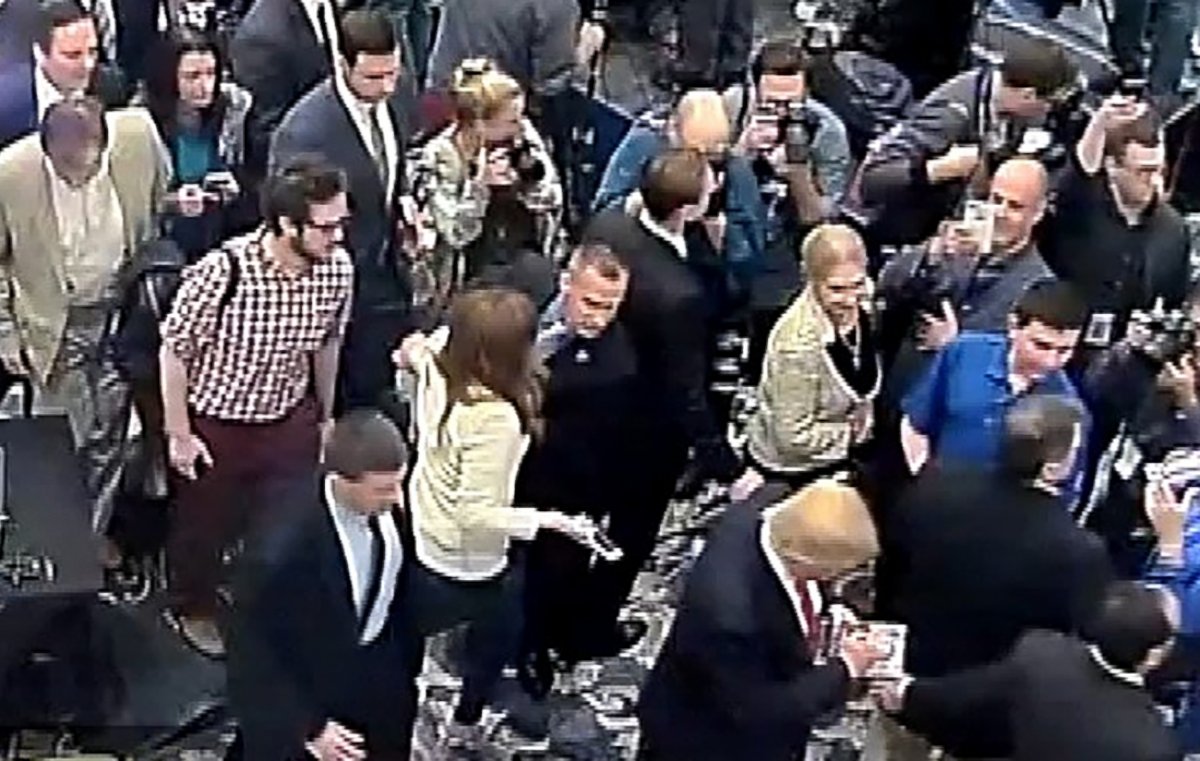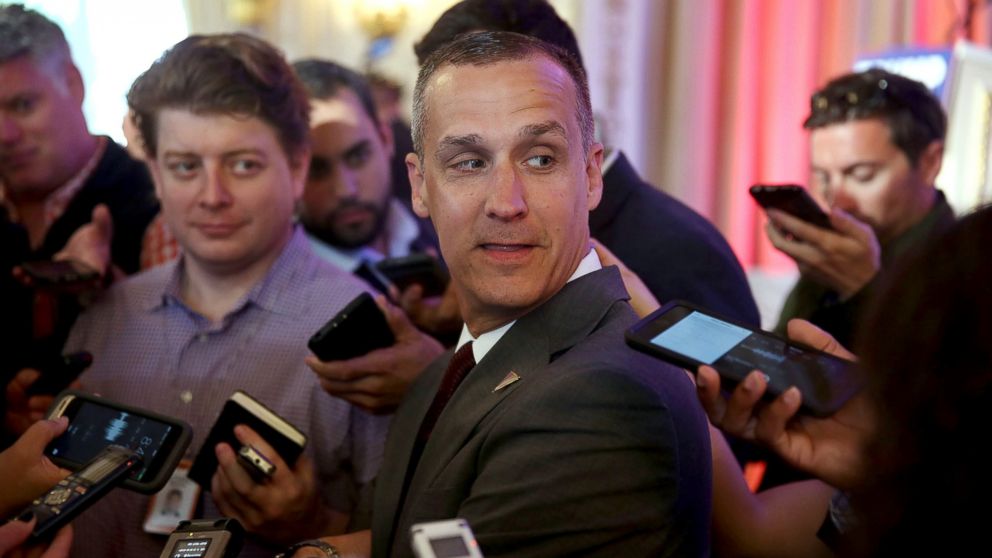The Next Legal Steps in the Battery Case Against Trump's Campaign Manager
— -- Questions surround the fate of the criminal case against Donald Trump's campaign manager Corey Lewandowski after he was charged with simple battery on Tuesday.
The charge, which stems from an alleged incident following a press conference at Trump's Mar-a-Lago club in Palm Beach, Florida, earlier this month, is a misdemeanor, but because of the circumstances of the case, it may be treated more seriously, according to one legal expert with whom ABC News spoke.
Lewandowski is accused of grabbing former Breitbart reporter Michelle Fields at the March 8 event. He has denied the alleged incident with Fields and called her “totally delusional” on Twitter.
Darren Shull, a criminal defense attorney working in Jupiter, Florida, is not connected to the case, but told ABC News that in his experience, less than 1 percent of misdemeanor cases go to trial. He expects this case to be the anomaly.
"Ultimately, I think my guesstimate is that this is going to end up as a trial," Shull said.
"It would be a huge circus," he added.
Lewandowski's lawyers put out a statement Tuesday after the charge was announced, saying that he is "absolutely innocent."
"He will enter a plea of not guilty and looks forward to his day in court. He is completely confident that he will be exonerated," the statement read.
As for the charge itself, simple battery includes any interaction that involves "unconsented touching," Shull explained.
ABC News Chief Legal Analyst Dan Abrams said on "Good Morning America" that "comparatively within the criminal law, it's not a particularly serious charge. With that said, it's still the criminal law."

Shull added that a conviction could result in a maximum fine of $1,000 and/or up to a year in possible jail time, but speculated that the chances of Lewandowski spending any time behind bars is "slim to none."
There are also a number of ways such a charge may be settled out of court, with plea deals involving anger management treatment programs or community service, but those would only come if the case doesn't go to trial as Lewandowski's attorneys have suggested it will, Shull said.
Lewandowski's criminal history would also play a role in any court decision, Shull said. Court records obtained by ABC News show that in addition to two minor traffic violations, Lewandowski was arrested in 1999 for attempting to carry an unlicensed loaded .40 caliber pistol into a U.S. House of Representatives office building. He had three pistol magazines and several rounds of ammunition when he was arrested, according to court documents.
He was acquitted and then unsuccessfully sued to get his property back, according to court records.
"His defense is going to be, I think, defense of another," Abrams said on "GMA." "He's going to say 'I saw this reporter approaching Donald Trump ... I just grabbed her to get her away from Donald Trump.' That's going to be a real defense here. Prosecutors could have a tough time if this goes to trial."
For his part, Trump has defended his campaign manager, telling ABC News' David Muir on "GMA" this morning that the incident was "very minor" and that "practically nothing happened."
Editor’s note: An earlier version of this story did not include mention of Lewandowski’s 1999 arrest. It has since been updated.




